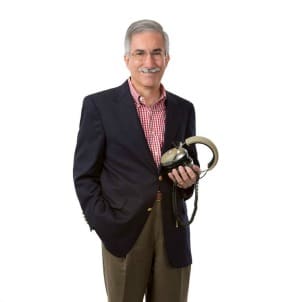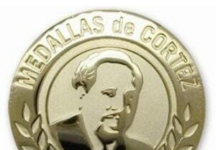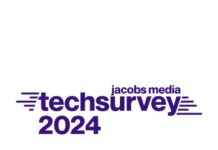
Yesterday we told you about Republican incumbent Clayton Fiscus who says because his opponent John Pulasky reads the weather on KATL-AM, he deserves an equal amount of time from the station to campaign. KATL station manager Donald Richard says that’s not going to happen because Billings isn’t part of the area in which KATL provides “city-grade” service, neither is the legislative district for which Fiscus and Pulasky are competing. To find out if KATL was safe in denying Fiscus airtime we turned to broadcast attorney John Garziglia and asked him if the radio station is required to grant Fiscus free airtime because his opponent reads the weather on KATL. Here’s what Garziglia found out…
The radio station weatherman runs for public office in a distant town. An opposing candidate for that same public office makes a request for FCC-required political equal opportunities on the weatherman’s radio station. Is the radio station required to grant that request for equal opportunities? In a word, no. If the office sought and voters who will vote for the candidate are not within the area served by the radio station, then equal opportunities do not arise. The weatherman can stay on the air.
The FCC’s political equal opportunity rule is fairly simple. If a candidate for public office makes a “use” of a broadcast station, opposition candidates are entitled to an equal opportunity provided a request is made within seven days of the “use”. For radio stations, a “use” is the recognizable voice of a candidate for public office in a non-exempt broadcast (exempt broadcasts include most newscasts, news interviews, documentaries, and coverage of news events). On-air personnel of a radio station running for public office, however, engage in a “use” each time the microphone is opened no matter what is broadcast.
If a radio personality decides to run for public office, then it is likely that requests for equal opportunities will arise from opposition candidates. Because the air personality is not paying for the airtime but rather is being paid, opposing candidates are entitled to free air time.
Worse yet, an opposing candidate can split up the amount of equal opportunity time into segments or lengths different than the “use”. Thus, if an air personality is on the air talking, reading news, and delivering weather forecasts for a total of three hours in the seven days preceding an equal opportunity request, the opposition candidate could potentially demand a run of 360 thirty second spots giving comparable exposure in terms of ratings and demographics. For a talk station host on the air for several hours per day, the liability for equal opportunities might quickly strip a station of all avails.
The FCC’s equal opportunity rule has put a crimp in more than one radio personality’s employment. Most radio stations will not run the risk of equal opportunity requests for the hours employed talent may be on the air, both live and potentially with recorded spots. Rather, the prudent reaction of most radio station management is that the moment an air personality becomes a legally-qualified candidate for public office, the air personality is removed from the air.
But, there are limits. One of the limits is the situation above where the air personality is running for a public office and the voters eligible to cast ballots, are far outside the radio station’s area served. Another limit is that equal opportunities must be requested by opposition candidates within seven days of the use. Thus, if a radio station wishes to take the risk of keeping an air personality candidate on the air, its maximum exposure is that air personality’s time on the air in the preceding seven days.
Air talent running for public office can seek the agreement of other candidates for the same office not to request equal opportunities, or to accept limited equal opportunity air time. Opposing candidates have no obligation to enter into such an agreement but if they do, the FCC has stated such agreements given with full knowledge of the relevant facts concerning the broadcast, and assuming the agreed-upon conditions are adhered to, would generally be binding.
equal opportunities, or to accept limited equal opportunity air time. Opposing candidates have no obligation to enter into such an agreement but if they do, the FCC has stated such agreements given with full knowledge of the relevant facts concerning the broadcast, and assuming the agreed-upon conditions are adhered to, would generally be binding.
The situation of a candidate in a distant political race asking for equal opportunities based upon a candidate’s appearance on a radio station that does not serve the area in which the political race is taking place is not a situation likely to occur often. A skeptical observer of the Montana situation would speculate that this was a situation of an opposition candidate seeking publicity by making a specious claim.
Equal opportunities are just one facet of the FCC’s political broadcasting rules. In these final few weeks leading up to the mid-term elections, it is likely that many FCC political broadcasting issues will arise.
The FCC’s political broadcasting rules are neither simple nor intuitive. In the past decade or so, the FCC has emphasized an enforcement mechanism of informal consultations in an attempt to immediately resolve most controversies since enforcement of the FCC’s political rules subsequent to an election does nothing to fulfill the underlying purposes of the rules.
If confronted with an FCC political broadcasting rule issue, whether it be a challenge to lowest unit charge, a request for what appears to be an undeserved equal opportunity, a request for an inordinate amount of political time, a demand to remove political advertising content from the air, or anything else regarding the FCC’s political rules, immediately call your communications counsel, your state broadcasters association, or the NAB. They will either have the answer, or they will be able to immediately seek a resolution of the issue for you from the FCC.
Map courtesy of radio-locater.com.








